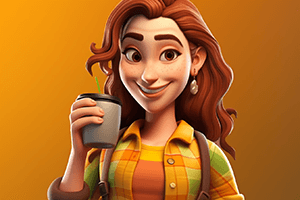
Espresso Shots and Caffeine: The Lowdown on Your Daily Dose
Learn about the amount of caffeine in espresso shots and how it affects your daily intake. Discover the pros and cons of drinking espresso shots regularly.
Espresso Shots and Caffeine: The Lowdown on Your Daily Dose
For many of us, a day without caffeine is like a day without sunshine. It's the fuel that keeps us going, and for some of us, the more caffeine, the better. But when it comes to espresso shots, how much caffeine are we really getting? And is it the best choice for our daily dose?
What is an Espresso Shot?
First, let's define what an espresso shot is. An espresso shot is a concentrated coffee beverage that is made by forcing hot water through finely ground coffee beans under high pressure. This results in a small, strong shot of coffee that is usually served in a small cup.
How Much Caffeine is in an Espresso Shot?
Despite its small size, an espresso shot can pack a powerful punch when it comes to caffeine. On average, an espresso shot contains around 63 milligrams of caffeine. This is about half the amount of caffeine found in a regular cup of coffee, which typically contains around 95 milligrams of caffeine.
However, it's important to note that the caffeine content of an espresso shot can vary depending on a number of factors, including the type of coffee beans used, the roasting process, and the method of preparation. Additionally, some coffee shops may use a double shot of espresso in their drinks, which would double the amount of caffeine.
The Pros and Cons of Espresso Shots
There are both pros and cons to choosing espresso shots as your caffeine source of choice. On the one hand, espresso shots are a quick and convenient way to get a strong dose of caffeine. They're also low in calories and fat, making them a healthier option than sugary coffee drinks.
However, on the downside, espresso shots can be quite bitter and strong, which may not be to everyone's taste. Additionally, the high concentration of caffeine in espresso shots can lead to jitters and anxiety in some people, especially if consumed in large quantities.
Alternative Sources of Caffeine
If you're not a fan of espresso shots or are looking for a lower-caffeine alternative, there are plenty of other options to choose from. For example, green tea is a great choice for a natural energy boost, as it contains less caffeine than coffee but also has other beneficial compounds like antioxidants and L-theanine, which can help to promote calmness and focus.
Other options include black tea, which contains around half the amount of caffeine as coffee, and yerba mate, a South American tea that is known for its energizing properties.
The Bottom Line
When it comes to caffeine, everyone has their own preferences and tolerances. If you're a fan of strong, bitter coffee, then espresso shots may be the perfect choice for you. However, if you're looking for a lower-caffeine alternative or something with a more mellow flavor, there are plenty of other options available.
Ultimately, the key is to consume caffeine in moderation and be mindful of how it affects your body. If you're experiencing negative side effects like jitters or anxiety, it may be time to cut back on your caffeine intake or try a different source of energy.
